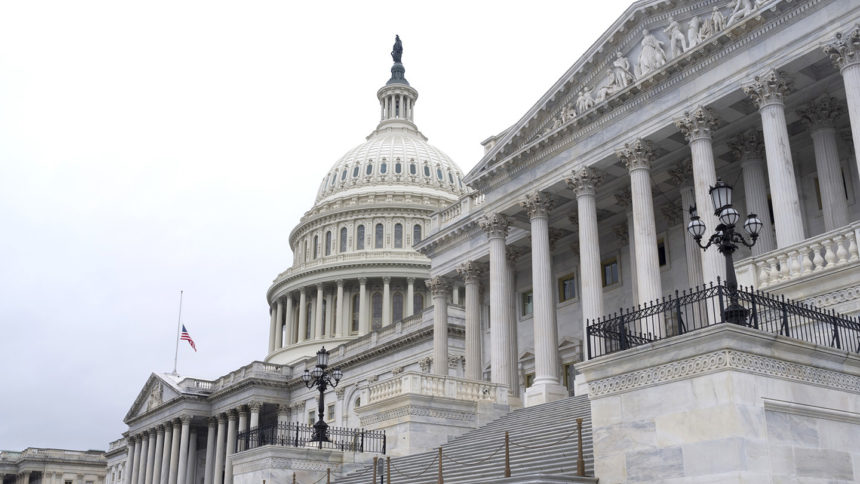U.S. Capitol Building (Credit: Joseburgos / Getty Images)
With the House poised — maybe — to vote this week on the $1.75 trillion social spending bill, Argentum said it remains disappointed that senior living remains excluded in the legislation. But leaders remain confident that plenty of time and opportunities lie ahead to change that situation.
Provider Relief Fund bill
During an Argentum Advocates membership call Wednesday, the association said it was throwing its support behind a bill introduced by U.S.Reps. Abigail Spanberger (D-VA), Anthony Gonzalez (R-OH), Cindy Axne (D-IA) and Mariannette Miller-Meeks (R-IA) in response to delays in distributing PRF dollars and the “tremendous uncertainty providers report about the future or relief from the program.”
The Provider Relief Fund Improvement Act would require the Department of Health and Human Services to distribute the remaining PRF dollars by March 31, relieve the “bureaucratic burdens” associated with shifting reporting deadlines, and allow PRF recipients to spend their dollars on investments in workplace and employee safety.
“Frontline caregivers in America’s senior living communities continue to wait for critically needed relief,” Argentum President and CEO James Balda said, repeating that assisted living providers have incurred more than $30 billion in COVID-19 expenses and losses since the beginning of the pandemic. “Yet relief has been slow and remains insufficient to meet this unprecedented challenge, particularly as providers contend with the rise in cases from the delta variant. While providers eagerly anticipate additional relief from Phase 4, we know that much more is critically needed.”
Specifically, the bill would:
- Extend the deadline for providers to use their awards through the end of the public health emergency.
- Require HHS to refund to providers any dollars returned to HHS at the first June 30 reporting deadline.
- Require HHS to distribute remaining PRF dollars by March 31.
- Clarify that providers can use PRF funds for workplace and safety provisions, including secure locks, panic buttons and trauma support for personnel.
“Our bipartisan bill reflects the urgency of the need to protect our healthcare workers,” Spanberger said in a release. “Not only would our bipartisan bill give additional certainty to healthcare institutions, but it would cut red tape and eliminate arbitrary restrictions on how providers can put this funding to good use.”
Infrastructure week
Argentum also said it is working behind the scenes to bring pressure on Congress to add senior living back into the Build Back Better Act.
Director of Government Relations Dan Samson referred to this week as “infrastructure week” — President Biden signed the bipartisan traditional infrastructure bill on Monday and the House has indicated that it will push for a vote this week on the Build Back Better bill prior to its Thanksgiving recess next week.
The framework for the act, which is half of the value of the original $3.5 trillion proposal, was unveiled in late October and calls for $150 billion to expand home- and community-based services for older adults and $150 billion to increase the supply of affordable housing — including $450 million for the Section 202 Supportive Housing for the Elderly program and other investments.
Samson said there is “uncertainty” moving forward due to the government’s competing priorities addressing the debt ceiling, government funding, continuing resolution, appropriations, and new concerns over rising inflation and the effects from government spending.
“A lot of tweaking still needs to happen in the Senate,” Samson said.
Argentum is using its “Don’t Leave Us Behind, Again” campaign to try to bring attention to the sector and promote targeted relief in the upcoming Phase 4 Provider Relief Fund distribution, critical workforce development, and support for the administration of vaccines, boosters and testing.



